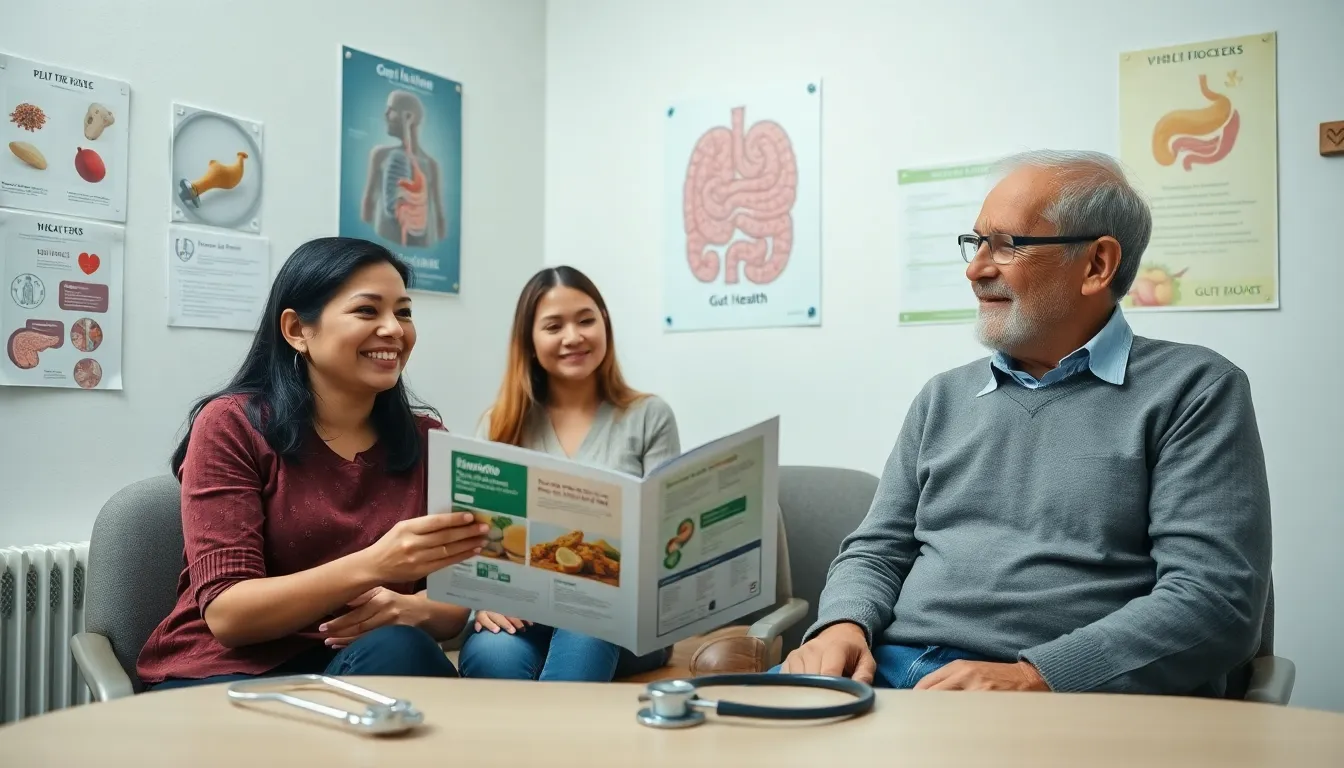Table of Contents
ToggleGasteromaradical disease might sound like a villain from a sci-fi movie, but it’s a real concern that affects many. Picture this: a condition that can throw a wrench in your daily life, making even the simplest tasks feel like climbing Mount Everest. But what if there’s hope on the horizon?
In this article, we’ll dive into the burning question: can gasteromaradical disease be cured? From the latest research to potential treatments, it’s time to explore whether this pesky condition can be sent packing. So grab your favorite snack and settle in; you’re about to embark on a journey that could change everything you thought you knew about this intriguing ailment.
Understanding Gasteromaradical Disease
Gasteromaradical disease presents various challenges that significantly affect individuals’ quality of life. Understanding its definition and characteristics is crucial for grasping its impact.
Definition and Characteristics
Gasteromaradical disease refers to a complex condition characterized by inflammation in the stomach and intestines. Symptoms often include abdominal pain, irregular bowel movements, and significant discomfort. Patients may experience weight loss and nutritional deficiencies due to malabsorption. The duration and severity of symptoms can vary widely among individuals. In some cases, symptoms may mimic other gastrointestinal disorders, complicating diagnosis. Healthcare professionals typically utilize imaging studies and laboratory tests to confirm diagnosis.
Causes and Risk Factors
Multiple factors contribute to the development of gasteromaradical disease. Genetic predisposition plays a significant role in the condition’s manifestation. Environmental triggers, such as dietary habits and pathogens, can exacerbate symptoms. Chronic stress may also increase the risk of flare-ups. Additionally, certain medications have potential links to this disease, especially NSAIDs. People with pre-existing gastrointestinal conditions face higher chances of developing gasteromaradical disease. Understanding these causes and risk factors can help in taking preventive measures.
Current Treatments Available


Effective management of gasteromaradical disease relies on a combination of conventional medical treatments and alternative therapies. These approaches can alleviate symptoms and improve patients’ quality of life.
Conventional Medical Treatments
Conventional treatments include anti-inflammatory medications, which reduce inflammation in the stomach and intestines. Doctors often prescribe corticosteroids for severe cases, helping control symptoms when they escalate. Additionally, immunosuppressive drugs can be utilized to address underlying immune system issues. Nutritional support plays a critical role, with tailored diets designed to enhance nutrient absorption. Regular follow-ups help monitor health and adjust treatments as necessary.
Alternative Therapies
Alternative therapies encompass a range of practices aimed at complementing conventional care. Dietary modifications focus on eliminating inflammatory foods. Probiotics may support gut health, promoting a balanced microbiome. Herbal supplements, like turmeric and ginger, can also provide anti-inflammatory benefits. Mind-body approaches such as yoga or meditation help manage stress levels, directly impacting gastrointestinal health. These therapies serve as valuable adjuncts, enhancing overall treatment outcomes.
Research and Developments
Recent advancements in gasteromaradical disease research reveal promising pathways for potential cures. Researchers are examining various treatment options that focus on reducing inflammation and improving gut health, reflecting a shift toward personalized medicine.
Recent Studies on Cures
Recent studies highlight breakthroughs in understanding the disease’s underlying mechanisms. Clinical trials demonstrate the effectiveness of specific biologic therapies targeting the immune system. These therapies show significant improvements in reducing gastrointestinal symptoms and inflammation, according to data from health institutions. Investigations into genetic factors provide insight into tailored therapies based on individual patient profiles. Some trials are exploring the use of novel nutritional approaches, showcasing how diet can influence disease progression.
Emerging Therapies
Emerging therapies offer hope for gasteromaradical disease management. One area gaining attention involves microbiome-based treatments, aimed at restoring gut flora balance. Researchers are studying the impact of fecal microbiota transplantation in certain patient populations, reporting positive outcomes. Stem cell therapy also shows potential to regenerate damaged intestinal tissue, demonstrating early promise in clinical settings. Additionally, new pharmacological agents focus on modulating inflammation pathways, promising further enhancements in treatment efficacy. These diverse approaches reflect a growing commitment to developing effective solutions.
Patient Experiences
Accounts from patients highlight the diverse challenges faced with gasteromaradical disease. Each individual’s journey reveals unique symptoms and responses to treatments, which emphasize the condition’s complexity.
Case Studies
Research includes several case studies detailing patients with varying symptoms. One case involves a 34-year-old woman who experienced severe abdominal pain and weight loss. After initiating treatment with anti-inflammatory medications, her symptoms improved significantly within six months. Another study features a 50-year-old man whose symptoms mirrored IBS, complicating diagnosis. Tailored dietary changes combined with probiotics marked a notable recovery, demonstrating the potential of personalized approaches. These examples illustrate the diverse responses to treatment, underscoring the necessity for individualized medical strategies.
Testimonials
Patient testimonials often provide valuable insights into managing gasteromaradical disease. One individual shared their experience of living with chronic discomfort and the impact it had on daily activities. They noted that a shift to a gluten-free diet led to substantial symptom relief. Another patient highlighted the effectiveness of yoga and mindfulness practices in addressing stress-related symptoms. These personal accounts showcase the importance of support and adaptable treatment plans in improving life quality, reinforcing the idea that holistic approaches can benefit management strategies.




